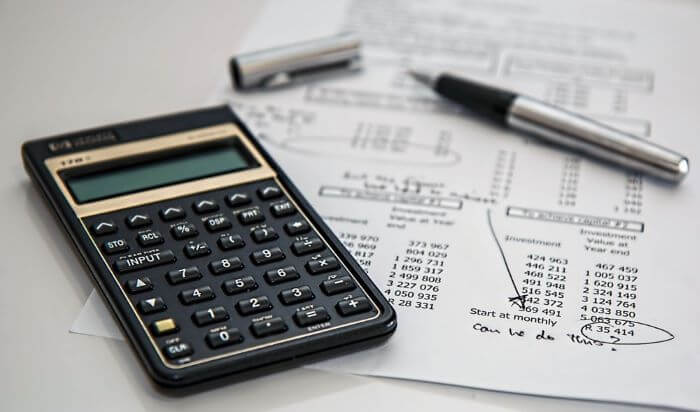One of the best benefits of house hacking is the rental income you receive.
However, rental income is only one piece of a bigger picture. If you’ve ever heard the phrase “it’s not how much you make, but how much you can save” – that’s the bigger picture.
It doesn’t matter how much rental income your house hack generates if there are no savings.
So, in this post, I’m going to show you how to calculate cash flow for a house hack.
Table of Contents
Calculate your income
The first step in the process of calculating the cash flow of your house hack is to calculate your income.
This section is as simple and straightforward as it sounds. For most people, this means just adding up the monthly rental income you receive.
Now, here’s where things get a little tricky. Because you’re also living at the property – you should calculate your income twice. For example:
- Calculate your income received without including the unit you live in
- Calculate your income received while including the unit you live in (Using the market rent amount as if it was also rented out)
By calculating your income twice, you can get an idea of the cash flow with you living at the property – as well as what your cash flow may look like after house hacking (if you move out and rent your unit).
Also, If you collect additional fees from parking or pet rent – make sure to include those as well.
Calculate your expenses
The next step in the process is to calculate your expenses. You can define “expenses” as any monetary amount that reduces your spendable income (aka money you would otherwise keep).
The better you are at calculating and estimating your expenses, the more accurate your cash flow calculation will be.
When calculating your expenses, include:
- Your monthly mortgage
- The money you save for repairs (savings)
- The money you save for vacancies (savings)
- The money you save for capital expenditures (savings)
- Rental permits or fee
- Utilities you pay for
- etc…
Although your house hacking income is very important, your expenses are just as important (if not more). Depending on your situation, your expenses can make a good deal look bad, and vice-versa.
For example, if you use a low downpayment (let’s say 3.5%) – your monthly mortgage expenses will be much higher than if you use a higher downpayment (let’s say 25%). So, if you judge how successful a house hack is based only on cash flow – the lower you can get your expenses – the higher your cash flow will be.
However, please keep in mind that when analyzing a house hacking deal, it may be a smart idea to do a cash-on-cash analysis as well. Although cash flow is king, you might find that purchasing a house in cash so that your monthly cash flow is high could be a bad financial decision overall.
Calculate your cash flow
Now that you have all the information needed, you can calculate your cash flow using a simple equation:
Income – Expenses = Cash Flow.
So, if your monthly income was $1,000 and you had $800 worth of monthly expenses, your cash flow would be $200 per month.
$1,000/month – $800/month = $200/month
Final Thoughts
Calculating the cash flow for your house hack is a relatively simple and quick task.
Cash flow is an important metric for me and I recommend anyone looking to house hack to calculate theirs as well (and read this house hacking guide). If for some reason you don’t have all the information needed to calculate your cash flow – do your best to estimate.
The better your estimation, the more accurate your calculated cash flow will be.
But don’t obsess over cash flow. It’s only one metric. And depending on your goals, it may not even be the most important metric for your situation.

Thanks for sharing. I read many of your blog posts, cool, your blog is very good.